As a predominantly agrarian society, we would think that Indonesia has excelled in self-sufficient food production. Not only owing to the bountiful nature and supportive climate the nation is blessed with but also the available labour force. The reality, however, is Indonesia’s rural agricultural labour continues to decline with 70% of current working farmers aged over 45 years old.
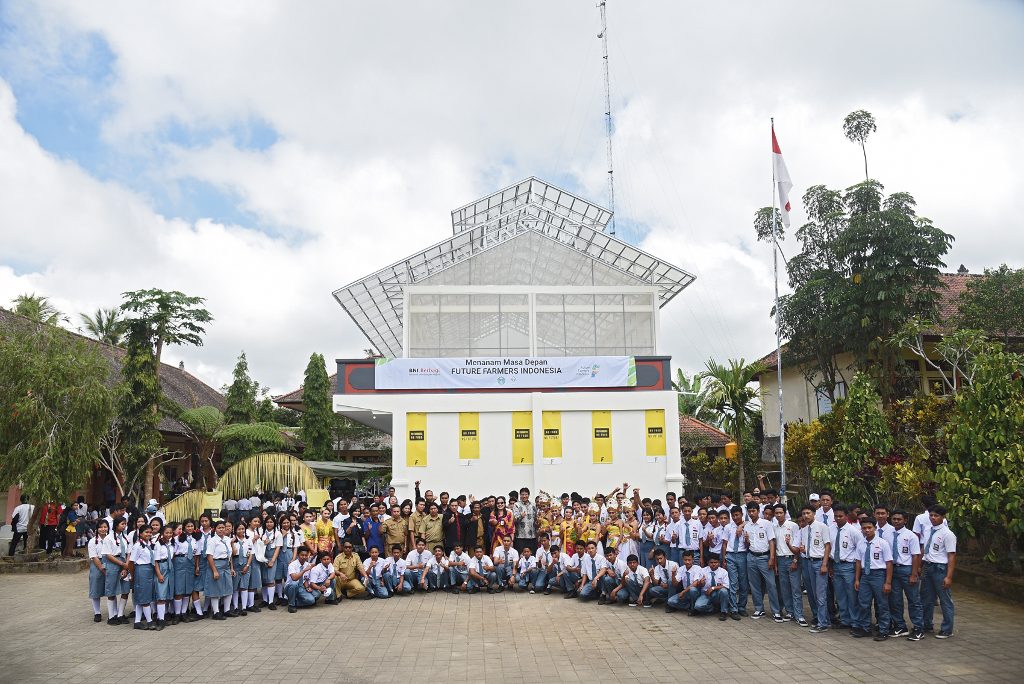
The issue at hand is evident; that there is indeed a colossal stigma around the profession of farmers being perceived as a less prestigious, low-income job and has a damaging effect to the industry’s future. Not only are young people reluctant to pursue farming, parents and guardians frankly discourage them to plunge into this career path.
The science, art, and practice of this sector feed us and the world; and if we allow the negative light to persist, it may be detrimental to our economy and infrastructure. No farmers mean no food. The Ministry of Agriculture’s target to bolster Indonesia as a world food resources in 2045 might be a mere dream.
Addressing the stigma and highlighting the importance of farming, Future Farmers Indonesia (FFI) step in to make a change starting in Bali. Founded in July 2018, the growing team of FFI are on the run to educate the youth, emphasising on the vital impacts of agriculture and essentially creating a positive cloud around farming. They work hand in hand with Yayasan Parama Anak Bangsa, The Student Loop, Universitas Udayana, Institut Pertanian Bogor, among other national and international universities, students, academics, corporates and governments.
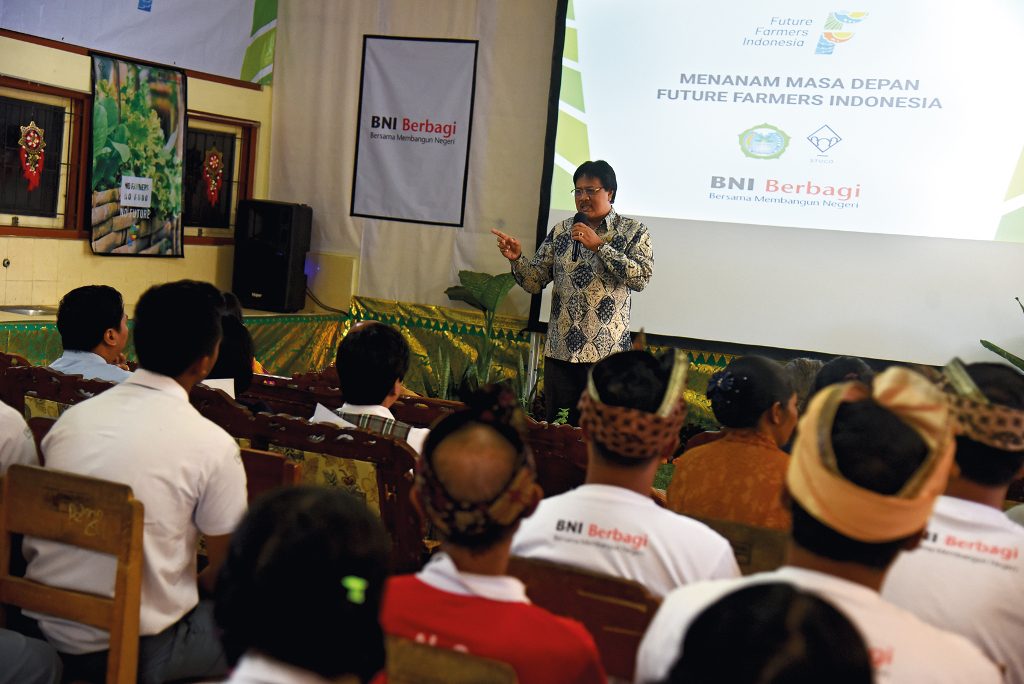
Working closely with their partners, they connect research on market demands and insight from the farming community to reduce food cost without compromising quality. The goal is to supply fresh, locally grown food to neighbouring businesses and act as a bridge to help local economies to thrive. For the environment, they have taken actions to reduce carbon footprints by cutting distribution line and food wastage.
Project Manager, Radhya Avisya, argues that farming can and should be more than manual labour. It isn’t a sector where it’s all work and no pay. In fact, agriculture is the nation’s second most influential contributor to economic growth, reaching a GDP of over 3 trillion Rupiah in 2017.
These days, children from rural areas aspire to land high governmental positions, which is most likely rooted from early education or parental influences. In reality, they are the ones who hold the most promising potential to continue the agricultural path, perhaps from their family’s land and/or legacy. However, farming no longer appeals to them due to the lack of success they see from their parents or grandparents examples. This gives farming a bad reputation. The trading and pricing system in Indonesia is antiquated and lacks solid regulation, consequently leading to an unfair practice that has been passed down from time to time.
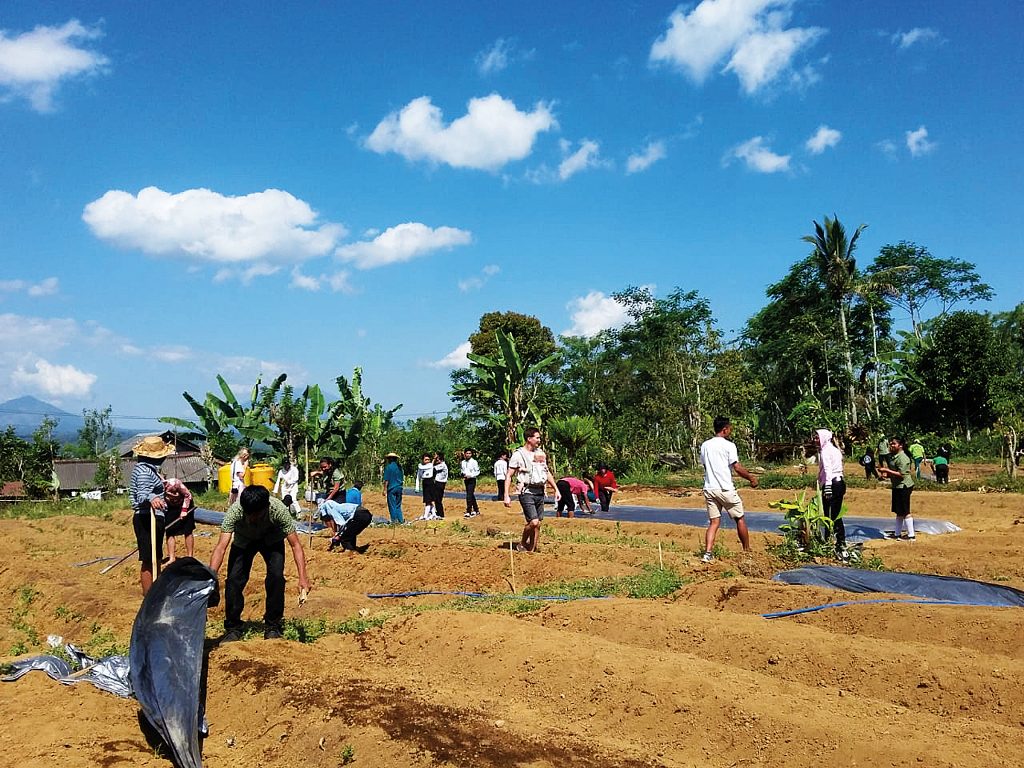
Prior to improving the existing system, FFI strives to establish a sound model in schools then gradually introduce the idea to parents, farmers, and local communities.
“If we go back to the root of the cause, in the most traditional sense, we could incorporate the idea in schools and propagate them into choosing to farm, but it doesn’t work when even parents are unaware of the importance of it.”
Their pilot project is working with SMKN 1 Petang, Bali’s only agriculture vocational school, where they assist in students planting and designing edible gardens. Connecting hospitality and tourism is another way to engage with students and raise awareness. For example, inviting culinary students to do the same and cultivating their own fresh batches of herbs and spices to dish up later on. They aim to promote a nurturing environment prior to the actual production of vegetables.
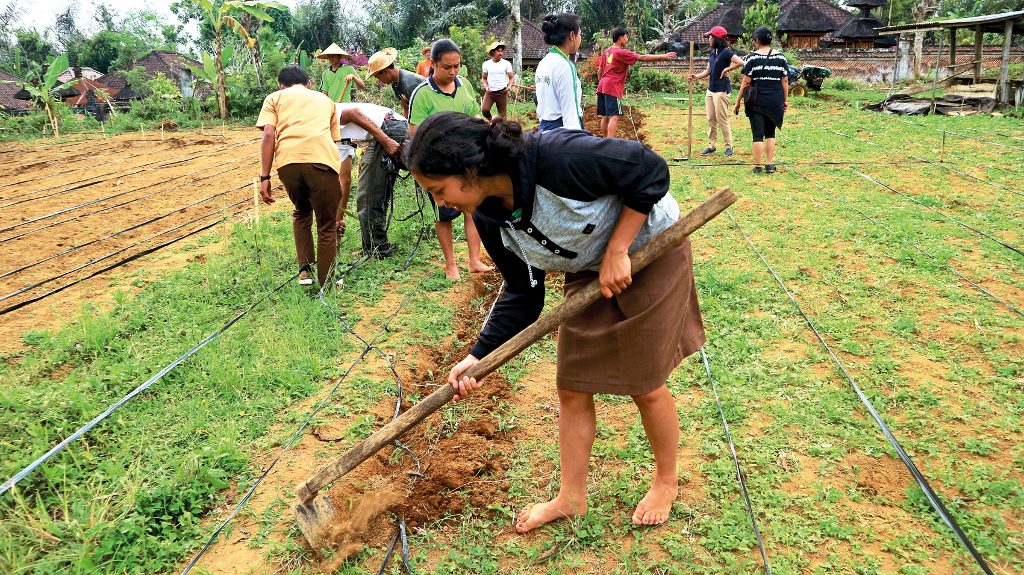
The modern-day youth are more progressive, business-minded, and risk-takers. They are believed to be more open to discussions and opportunities to experiment with new ideas. The thirst of exchanging ideas and taking actions is the kind of inspiration the rural agriculture sector needs in Indonesia. This way, farming could ultimately be looked at as a prosperous profession.
Radhya believes that agriculture should be more integrated with other facets in the world. “Like any other businesses, farming should find its niche and USP. Maybe it’s time to look at it from a business perspective, not as mere labour.”
Young people, particularly those living in the city, should have their eyes opened to where their food is sourced. It’s time for our farmers to come out from the backstage and step into the spotlight. Apart from understanding where our food comes from, the message is to appreciate the people who are growing them.
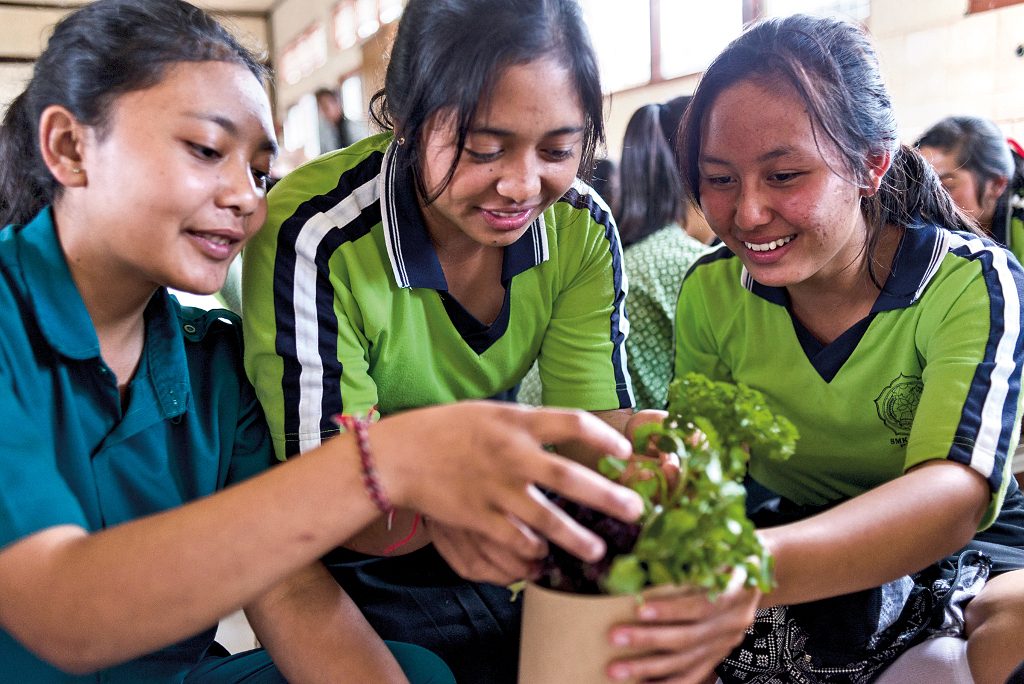
There are various ways to support FFI and the future of Indonesia’s agriculture. The easiest way is to donate. However, if you are located in Bali, there are small projects in school for you to participate and contribute. Creative people and aspiring artists can lend a helping hand in the school’s recycling project. Foreigners can teach English and broaden their perspective from an international point of view. External inputs and ideas from everyone everywhere are welcome.
You can donate art, ideas, skills, seeds, suggestions, opinions to info@futurefarmersindonesia.com or +6282112416507.






